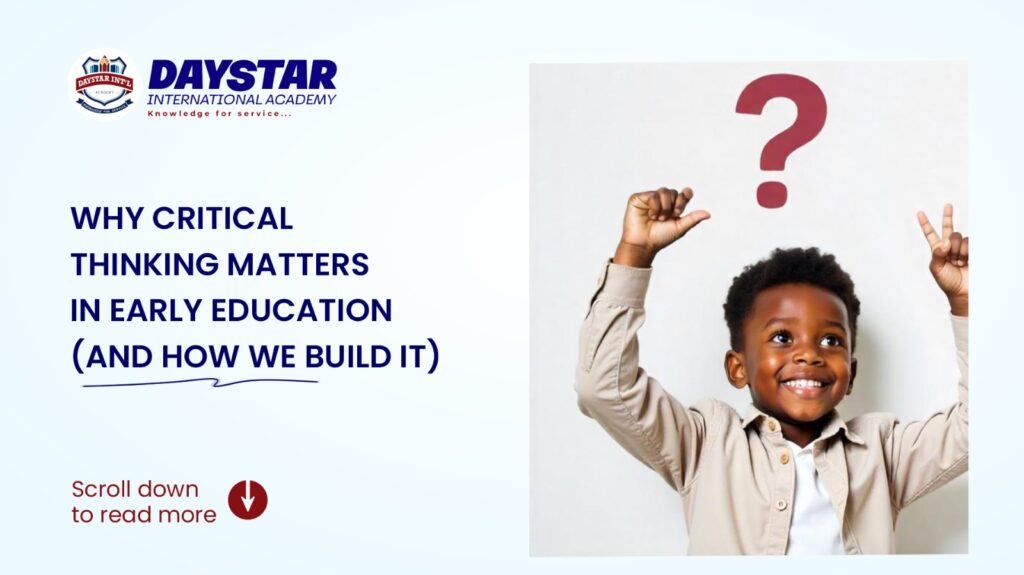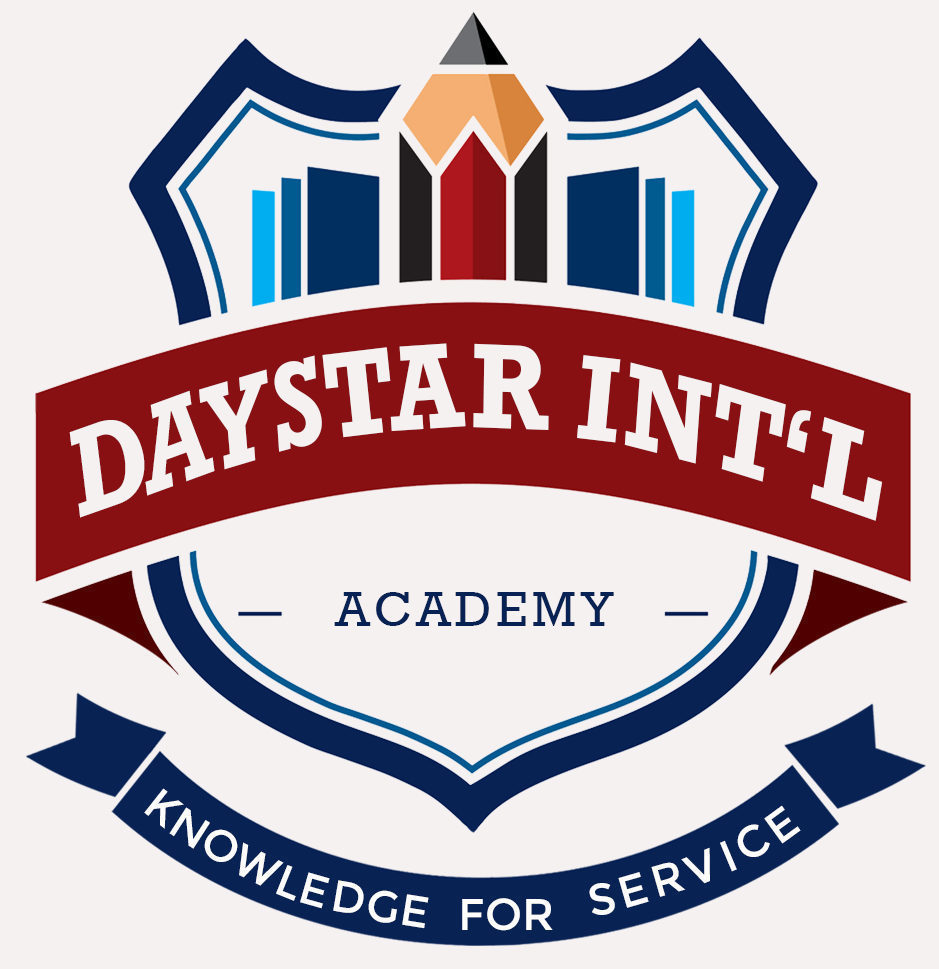
🧠 What Is Critical
Thinking and Why Does It Start Early?
When we hear “critical thinking,” we often picture
adults debating complex ideas or solving major world problems. But in truth, critical
thinking starts much earlier and much simpler.
For a child, critical thinking can be as basic (yet
profound) as asking:
“Why did my blocks fall down?”
“What happens if I do it differently next time?”
At Daystar International Academy, we believe that problem-solving
and independent thinking are not add-ons, they’re part of the foundation.
That’s why critical thinking is one of our core values, built into how
we teach, how we guide, and how we support every child’s learning journey.
🧩 Why Does It Matter So
Much in the Early Years?
1. It Builds Lifelong Confidence
When children learn how to ask questions, test their ideas,
and make decisions, they gain confidence not just in what they know, but in how
to figure things out when they don’t.
“I can think it through” is one of the most empowering
things a child can learn to believe.
2. It Prepares Them for a Changing World
The jobs of tomorrow and even the exams of today reward
those who can think creatively, solve unfamiliar problems, and adapt. Teaching
kids how to think, rather than what to think, sets them up for
success beyond academics.
3. It Encourages Curiosity
Critical thinking makes children more curious, not more
cautious. Instead of fearing mistakes, they learn to explore, test, and improve
which makes them more eager learners in the long run.
🛠️ How We Build Critical
Thinking at Daystar
At Daystar, we don’t teach critical thinking with big,
intimidating words. We embed it in everyday classroom moments so it
grows naturally, just like language and social skills.
Here’s how we do it:
✅ We Ask Open-Ended Questions
Rather than asking “yes or no” questions, our teachers
encourage students to explain, explore, and reflect.
Instead of: “Is 4 + 4 equal to 8?”
We ask: “How did you know 4 + 4 equals 8?”
That simple shift opens the door for children to think about
how they learn — not just what they get right.
✅ We Embrace Mistakes as Learning
Tools
We don’t rush in to correct errors. Instead, we ask:
“Hmm, that didn’t work. What could we try next?”
This helps students understand that mistakes aren’t failures
— they’re information.
✅ We Design Activities That
Require Choices
From building structures with blocks to designing mini
science experiments, our lessons are full of tasks where there’s no one “right”
way, just thoughtful planning, testing, and trying again.
✅ We Model Thinking Out Loud
Our teachers often talk through their own reasoning saying
things like:
“I’m not sure yet. Let’s look again together.”
This shows kids that adults don’t always have the answer
right away, and that thinking is a process not just a destination.
🧩 Want to Practice at
Home?
Try questions like:
- “What
do you think will happen next?”
- “Why
do you think that worked?”
- “Is
there another way we can try?”
🎯 Final Word
Critical thinking isn’t something we wait to teach in
secondary school; it’s a skill
At Daystar International Academy, we’re not just building
knowledge we’re nurturing independent, thoughtful minds that can
explore, imagine, and solve problems in a rapidly changing world.
Because learning how to think… is the most important lesson
of all.

